Eighteen Princeton University faculty members were transferred to emeritus status in recent action by the Board of Trustees. Transfers are effective July 1, 2019, except where noted.
They are:
- Kofi Agawu, the Hughes-Rogers Professor of Music;
- Ilhan Aksay, the Pomeroy and Betty Perry Smith Professor in Engineering and professor of chemical and biological engineering;
- Douglas Arnold, the William Church Osborne Professor of Public Affairs and professor of politics and public affairs, Woodrow Wilson School;
- Emily Carter, dean of the School of Engineering and Applied Science; the Gerhard R. Andlinger Professor in Energy and the Environment; and professor of mechanical and aerospace engineering and applied and computational mathematics, effective Sept. 1, 2019;
- Thomas Funkhouser the David M. Siegel '83 Professor in Computer Science;
- Martin Gilens, professor of politics and public affairs, effective July 1, 2018;
- Carol Greenhouse, the Arthur W. Marks '19 Professor of Anthropology;
- Hendrik Hartog, the Class of 1921 Bicentennial Professor in the History of American Law and Liberty and professor of history;
- Jeremy Kasdin, the Eugene Higgins Professor of Mechanical and Aerospace Engineering;
- Andrea LaPaugh, professor of computer science;
- Anson Rabinbach, the Philip and Beulah Rollins Professor of History;
- Harvey Rosen, the John L. Weinberg Professor of Economics and Business Policy;
- Jorge Sarmiento, the George J. Magee Professor of Geoscience and Geological Engineering;
- David Spergel, the Charles A. Young Professor of Astronomy on the Class of 1897 Foundation and professor of astrophysical sciences;
- Jacqueline Stone, professor of religion;
- James Stone, the Lyman Spitzer Jr., Professor of Theoretical Astrophysics and professor of applied and computational mathematics;
- Eric Wood, the Susan Dod Brown Professor of Civil and Environmental Engineering; and
- Virginia Zakian, the Harry C. Wiess Professor in the Life Sciences and professor of molecular biology.

Kofi Agawu
Kofi Agawu has advanced the study of music across genres, cultures, continents and eras. His research spans the disciplines of music scholarship to encompass music theory and analysis, music history and ethnomusicology. His subjects of inquiry include a broad swath of music — from works by Mozart and Mahler to Schubert and Stravinsky, as well as the music of the Ewe people of his native Ghana. He joined the Princeton faculty in 1998; in the 2006-07, he spent the academic year teaching at Harvard University, then returned to Princeton.
He is the author of “Playing With Signs: A Semiotic Interpretation of Classical Music,” the landmark study “African Rhythm: A Northern Ewe Perspective,” “Representing African Music: Postcolonial Notes, Queries, and Positions” and, for a more general readership, “The African Imagination in Music.”
Agawu has served as director of graduate studies; mentored students in music history, music theory, and ethnomusicology; and attracted scores of undergraduates to his courses on African music. In 2011, he received Princeton’s Howard T. Behrman Award for Distinguished Achievement in the Humanities.
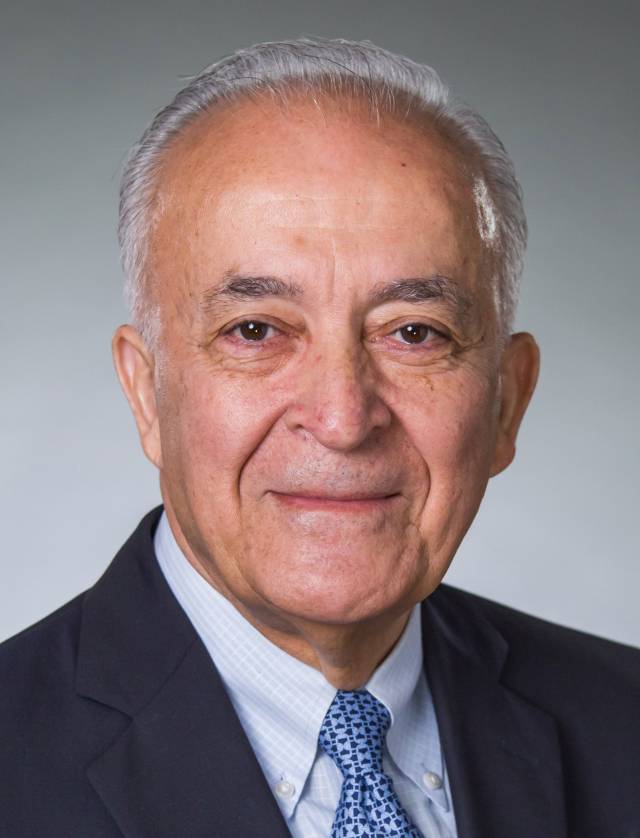
Ilhan Aksay
He earned his bachelor’s degree from the University of Reading University, a master’s degree from King’s College London and a Ph.D. from Stanford University.
Ilhan Aksay is a leading researcher in the science and technology of materials processing. He earned his undergraduate degree from the University of Washington-Seattle and his Ph.D. from the University of California-Berkeley. In 1992, he joined the Princeton faculty as professor in the (then called) Department of Chemical Engineering.
Aksay has a history of groundbreaking research throughout his career. He was the principal force behind the measurement and understanding of phase equilibria in the Al2O3-SiO2 system in the 1970s, colloidal processing of ceramics in the 1980s, and bio-inspired processing of materials through self-assembly in the 1990s. In recent years, an invention led by Aksay and his Princeton colleague, Robert Prud’homme, to produce functionalized graphene sheets, focused his attention on fundamental studies of the properties of these systems and their utility in engineering applications.
Many of his scientific studies have resulted in patents (more than 50 U.S. patents issued on key aspects of his work) and been licensed by companies such as Dow Chemical, St. Gobain, Praxair and Vorbeck Materials Corporation. His depth of understanding of fundamental issues and an innovative approach to problem solving have enabled him to tackle challenging problems in important emerging materials technology areas such as ceramic armor and high-temperature superconductors.
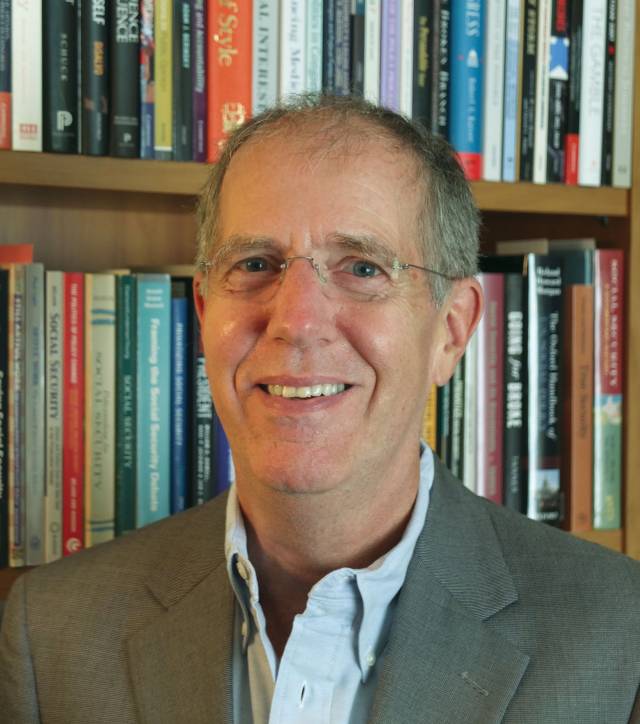
R. Douglas Arnold
Douglas Arnold has broad research interests in American politics, with special interests in congressional politics, national policymaking, representation, the mass media and Social Security. He is one of the nation’s leading congressional scholars. He joined the Princeton faculty in 1977.
He is the author of three core research books: “Congress and the Bureaucracy: A Theory of Influence,” “The Logic of Congressional Action” and “Congress, the Press and Political Accountability.” He is the editor and contributor to two books on the future of Social Security and remains actively engaged in research on this area of public policy.
In addition to his service to the politics department, Arnold directed two graduate programs in the Woodrow Wilson School, first the Ph.D. program and then the M.P.A. program.
He earned his bachelor’s degree from Union College and his Ph.D. from Yale University.
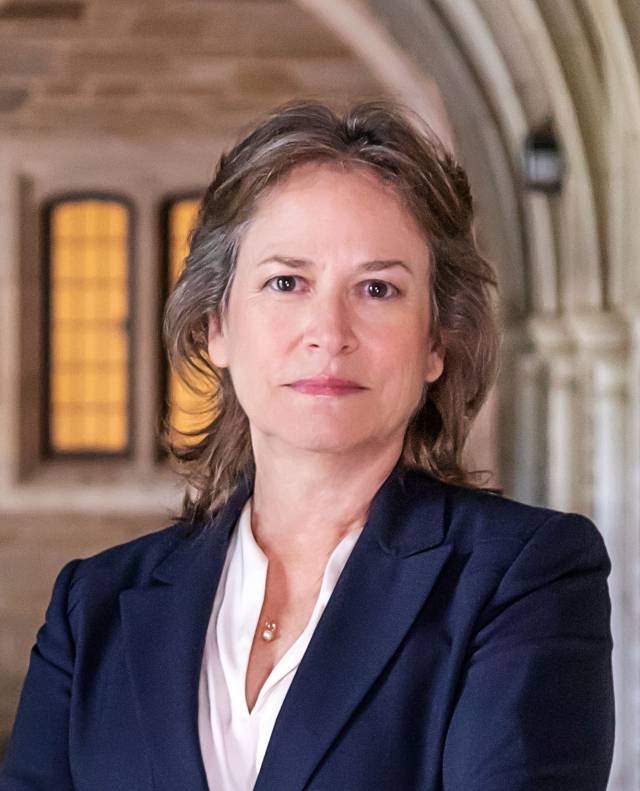
Emily Carter
Emily Carter, a Princeton faculty member since 2004, was founding director of the University’s Andlinger Center for Energy and the Environment, and served as dean of the School of Engineering and Applied Science since 2016. She earned an undergraduate degree from the University of California-Berkeley and her Ph.D. from the California Institute of Technology.
Carter has earned wide recognition for fundamental research contributions as well as for her vision for harnessing science and policy to produce lasting solutions to societal problems, including those of energy and the environment.
Her research spans the fields of chemistry, physics, applied mathematics and engineering and has included creating quantum mechanical tools for understanding and analyzing the behaviors of large numbers of atoms and electrons in materials. This highly influential work led in recent years to Carter’s research on creating effective fuel cells, using sunlight to generate electricity and make liquid fuels from carbon dioxide and water, and investigating lightweight metal alloys for vehicles and fusion reactor walls.
Carter is a member of the National Academy of Sciences, the American Academy of Arts and Sciences, and the National Academy of Engineering. She has written more than 300 scientific publications and delivered 500 invited and plenary lectures worldwide. Among her most cited works are her pioneering advances in “orbital-free density functional theory,” which allow the study of the quantum mechanical interactions of a large number of atoms in a way that was previously impossible. Such work is critical in developing new materials and relating the atomic-level structure of materials with their large-scale performance.
She will become the executive vice chancellor and provost of the University of California-Los Angeles.

Thomas Funkhouser
Thomas Funkhouser is one of the world's foremost experts in computer graphics, pioneering the use of computers to analyze, understand, and manipulate 3-D shape. His research focuses on computer graphics, computer vision, human-computer interaction and machine learning. He earned his bachelor’s degree from Stanford University and his Ph.D. from the University of California-Berkeley. He joined the Princeton faculty in 1998.
Most recently, he has been exploring how the machine learning revolution can be extended to 3-D shapes: how deep neural networks can be trained to understand both the details and the overall structure of 3-D environments, including how to predict what might be hidden in parts of the scene that cannot be observed directly.
He is a fellow of the Association for Computing Machinery (ACM) as well as the ACM SIGGRAPH Academy, and has received numerous honors and awards including the ACM SIGGRAPH Computer Graphics Achievement Award, an Alfred P. Sloan Fellowship and the National Science Foundation CAREER Award.
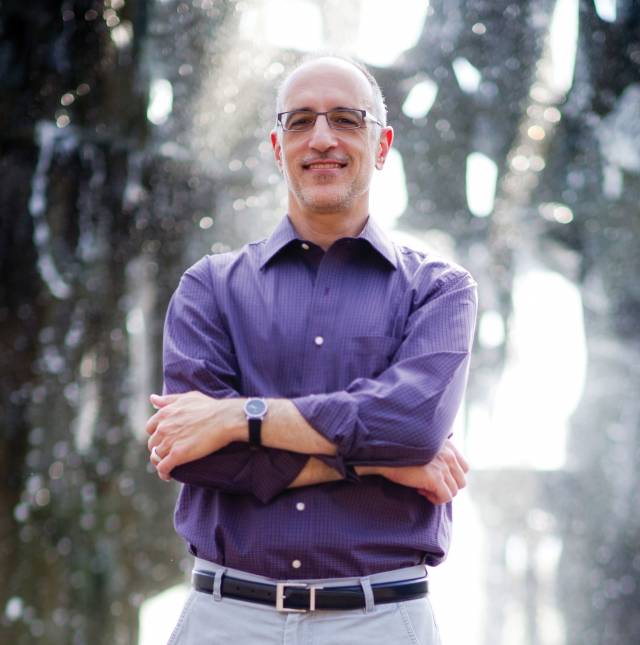
Martin Gilens
Martin Gilens examines representation, public opinion and mass media, especially in relation to inequality and public policy. He joined the Princeton faculty in 2003. He is the author of “Affluence & Influence: Economic Inequality and Political Power in America” and “Why Americans Hate Welfare: Race, Media and the Politics of Anti-Poverty Policy,” and co-author (with Benjamin Page) of “Democracy in America? What Has Gone Wrong and What We Can Do About It.”
Much of his research has been published in the most selective outlets in political science as well as widely recognized outside the discipline. He is a member of the American Academy of Arts and Sciences, and his work has been supported by nearly all of the most selective social science grants and fellowships available to scholars of American politics. He has held fellowships at the Institute for Advanced Study in Princeton, the Center for Advanced Study in the Behavioral Sciences at Stanford and the Russell Sage Foundation. His work is influential and esteemed in and out of the academy, and has garnered attention from leading news outlets around the globe and across the political spectrum.
Gilens earned his bachelor’s degree from the University of California-Santa Cruz and his Ph.D. from the University of California-Berkeley.
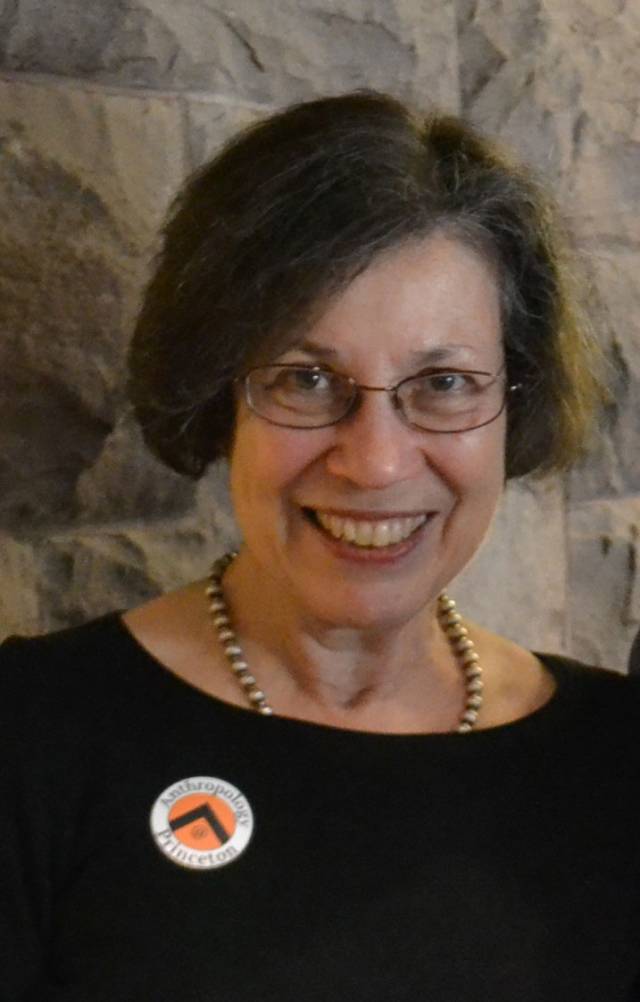
Carol Greenhouse
Carol Greenhouse focuses her research on the discursive and experiential dimensions of state power, especially federal power in the United States, and the reflexive and critical connections — in the U.S. and elsewhere — between ethnography and democracy. She joined the Princeton faculty in 2001 and is a recipient of the President’s Award for Distinguished Teaching. She earned her A.B. and Ph.D. from Harvard University.
Her first book, “Praying for Justice: Faith Order and Community in an American Town,” was one of the inaugural texts in contemporary American legal studies within the discipline of anthropology. Up until then, legal anthropology focused primarily on cultures outside the United States.
Greenhouse is also the author of “The Paradox of Relevance: Ethnography and Citizenship in the United States,” “Transnational Law: Cases and Problems in an Interconnected World” (with Alfred Aman Jr) and “Law and Community in Three American Towns” (with Barbara Yngvesson and David Engel); as well as edited volumes, “Democracy and Ethnography: Constructing Identities in Multicultural Liberal States” and “Ethnography in Unstable Places: Everyday Life in Contexts of Dramatic Political Change” (with Elizabeth Mertz and Kay Warren). Her forthcoming book is “Landscapes of Law: Practicing Sovereignty in Transnational Terrain” (co-edited with Christina Davis).
She is a member of the American Philosophical Society and the American Academy of Arts and Sciences.
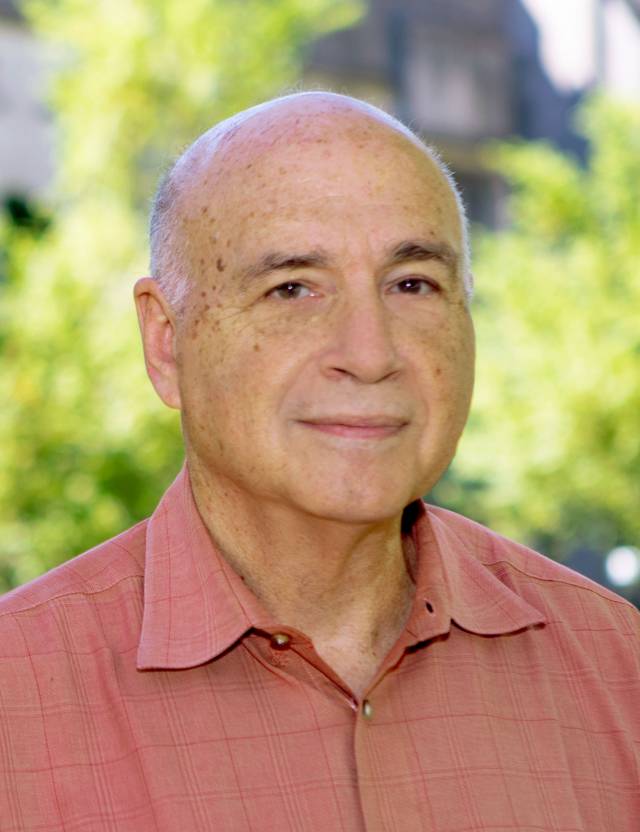
Hendrik "Dirk" Hartog
Hendrik “Dirk” Hartog is a leading historian of law and has spent his scholarly life focused on the difficulties and opportunities that come with studying how broad political and cultural themes have been expressed in everyday legal conflicts. He has worked in a variety of areas of American legal history: on the history of city life, on the history of constitutional rights claims, on the history of marriage, on the history of slavery and emancipation, and on the historiography of legal change and of legal history. He joined the Princeton faculty in 1992.
He is the author of “Public Property and Private Power: the Corporation of the City of New York in American Law, 1730-1870,” “Man and Wife in America: a History,” “Someday All This Will Be Yours: A History of Inheritance and Old Age,” and “The Trouble with Minna: A Case of Slavery and Emancipation in the Antebellum North.”
He was affiliated with Princeton’s Program in Law and Public Affairs, and from 2006-15 he directed Princeton’s Program in American Studies, diversifying the scope and content of American studies on multiple levels. He received the President’s Award for Distinguished Teaching in 2011 and the Graduate Mentoring Award in 2018.
He earned his A.B. from Carleton College, his J.D. from New York University School of Law and his Ph.D. from Brandeis University.
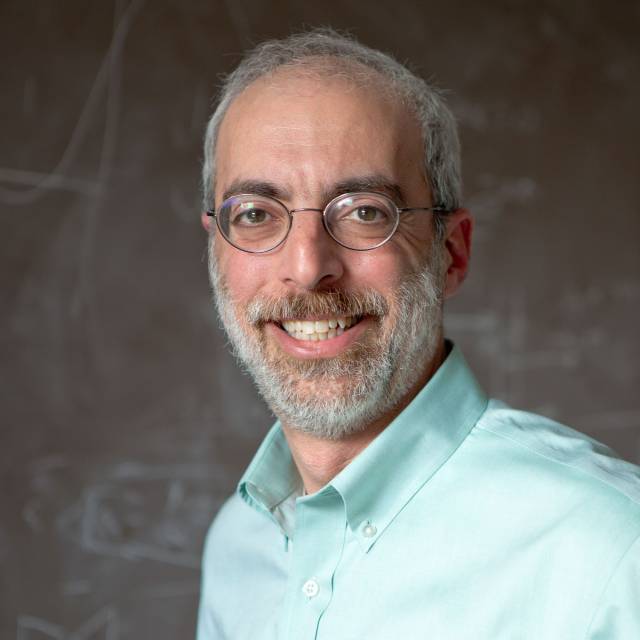
N. Jeremy Kasdin
Jeremy Kasdin is a leading researcher in the areas of space systems design, orbital mechanics, guidance and control of space vehicles, astronomical optics and instrumentation, adaptive optics, and exoplanet direct imaging. He is co-chair of the Science Definition Team for the Wide Field Infra-Red Survey Telescope (WFIRST) mission and adjutant scientist for the Coronagraph Instrument.
He has accepted a position at the University of San Francisco and will be named the Eugene Higgins Professor of Mechanical and Aerospace Engineering, Emeritus, at Princeton.
Kasdin joined the Princeton faculty in 1999. Upon his arrival, he initiated an interdisciplinary group that drew from many areas including astrophysics, geology, mechanical and aerospace engineering, biology and operations research, as well as the Institute for Advanced Study in Princeton, which met weekly to brainstorm about searching for Earth-like planets. The coronagraph approach to planet imaging was an outcome of these conversations, and it inspired NASA to change its perspective on the best method for exoplanet imaging.
In addition to his position in MAE, Jeremy also had an affiliated appointment in the Department of Astrophysical Sciences. At Princeton, Jeremy led a collaborative team investigating high-contrast imaging techniques for detecting and characterizing terrestrial exoplanets. That group has pioneered the use of pupil-plane coronagraphs and external occulters for space-based imaging. The Princeton team also developed some of the key techniques for wavefront control with a coronagraph.
He earned his bachelor’s degree from Princeton and his Ph.D. at Stanford University.
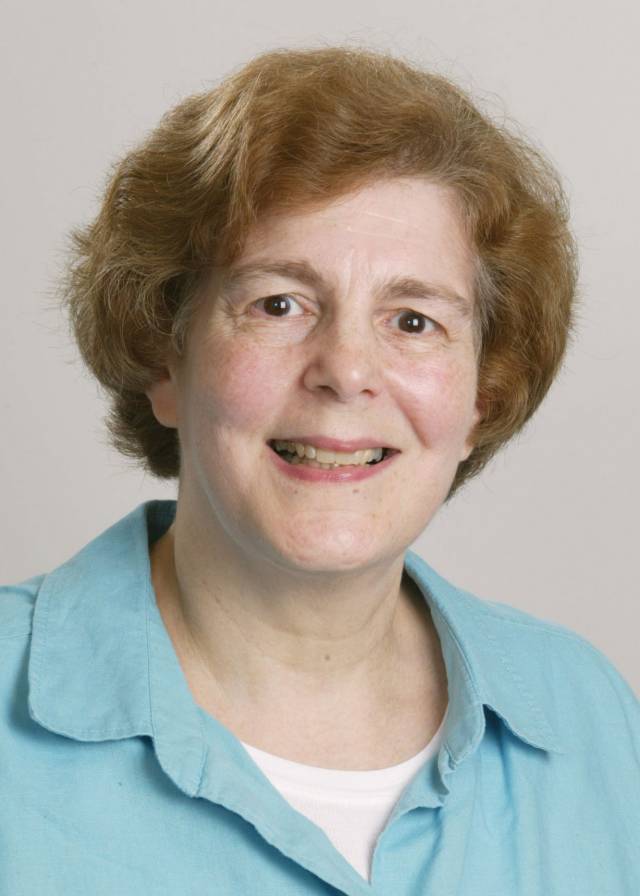
Andrea LaPaugh
Andrea LaPaugh is a leading researcher on information discovery for large-scale digital collections, computer-aided design of digital systems and algorithm foundations. She earned her bachelor’s from Cornell University and her Ph.D. from MIT.
She joined Princeton’s computer science faculty in 1981. Her research on algorithms for VLSI and on general graph algorithms helped usher in the age of computer-aided design automation, the technology by which our computers and phones are designed. In the 1990s, with the rise of the World Wide Web, Andrea turned her attention to algorithms for search, information retrieval and content delivery.
From 2003-18, as the number of undergraduates concentrating in computer science grew from 25 per year to more than 160, LaPaugh was one of the professors who organized and coordinated the advising of undergraduate independent work, and served effectively as departmental representative from 2014-18, running the largest undergraduate concentration in the University’s history.
She also served 2000-04 as the head of Forbes College, during which time she participated in the planning for Princeton’s transition to the four-year residential college system.

Anson Rabinbach
Anson Rabinbach is a specialist in modern European history with an emphasis on intellectual and cultural history who has served on Princeton’s faculty since 1996. He has published extensively on Nazi Germany, Austria and European thought in the 19th and 20th centuries. He earned his bachelor’s degree from Hofstra University and his Ph.D. from the University of Wisconsin-Madison. He joined the Princeton faculty in 1996.
He is the author of “The Crisis of Austrian Socialism: From Red Vienna to Civil War 1927-1934,” “The Human Motor, “In the Shadow of Catastrophe: German Intellectuals Between Enlightenment and Apocalypse” and “The Third Reich Sourcebook (with Sander Gilman). He helped co-found the journal New German Critique in 1974 and served for many years on the editorial board of Dissent magazine.
His current research is on concepts invented in the 20th century, including “totalitarianism” and genocide. It emphasizes World War II exchanges between European and American intellectuals.

Harvey Rosen
Harvey Rosen helped shaped the field of public finance as a researcher, author and professor at Princeton for 45 years, where he joined the faculty in 1974. He also has served as the director of the Center for Economic Policy Studies at Princeton.
He has published over 80 academic articles, many in the leading journals of economics. His research interests span numerous areas in public finance, including the effects of taxation on labor supply, human capital, housing demand and entrepreneurship. He wrote two undergraduate textbooks, “Microeconomics” (with Michael Katz) and “Public Finance.”
From 1989 to 1991, Rosen served at the Treasury Department as the deputy assistant secretary (tax analysis) in the first Bush administration. From 2003-05, he served on the President’s Council of Economic Advisers in the second Bush administration. In 2007, he received the National Tax Association’s most prestigious award, the Daniel M. Holland Medal for distinguished lifetime contributions to the study and practice of public finance.
He was the first head of Whitman College, which opened as Princeton's sixth residential college in fall 2007. He was a member of the Four-Year College Program Planning Committee, helping to develop the blueprint for the new system.
He earned his bachelor’s degree from the University of Michigan and his Ph.D. from Harvard University.

Jorge Sarmiento
Jorge Sarmiento studies and models ocean circulation, biological processes in the ocean, and the impacts of circulation and metabolism on the oceanic distribution of those elements involved in biological cycles (primarily CO2, O2, nitrogen, phosphorus and iron). He came to Princeton as a 1978 as a research associate and became a faculty member in 1980.
At Princeton, he also serves as the director of the Southern Ocean Carbon and Climate Observations and Modeling Program (SOCCOM), a six-year NSF funded program established in 2014 with scientists at eight American institutions and multiple foreign collaborators. SOCCOM members are engaged in observing and modeling the physical circulation of the Southern Ocean and the large-scale processes linking biological carbon fluxes and ocean chemistry, providing information about the nature and activity of Southern Ocean ecosystems.
He was the long-time director of the Program in Atmospheric and Oceanic Sciences at Princeton and the director and scientific leader of the Cooperative Institute for Climate Science, a collaboration between Princeton and NOAA, established in 2003, and the Cooperative Institute for Modeling the Earth System, established in 2018. Sarmiento is co-author (with Nicolas Gruber) of the graduate textbook “Ocean Biogeochemical Dynamics.” He served as an associated faculty member with the Andlinger Center for Energy and the Environment, the Department of Civil and Environmental Engineering, and the Princeton Environmental Institute.
He earned his bachelor’s degree from Swarthmore College and his Ph.D. from Columbia University.
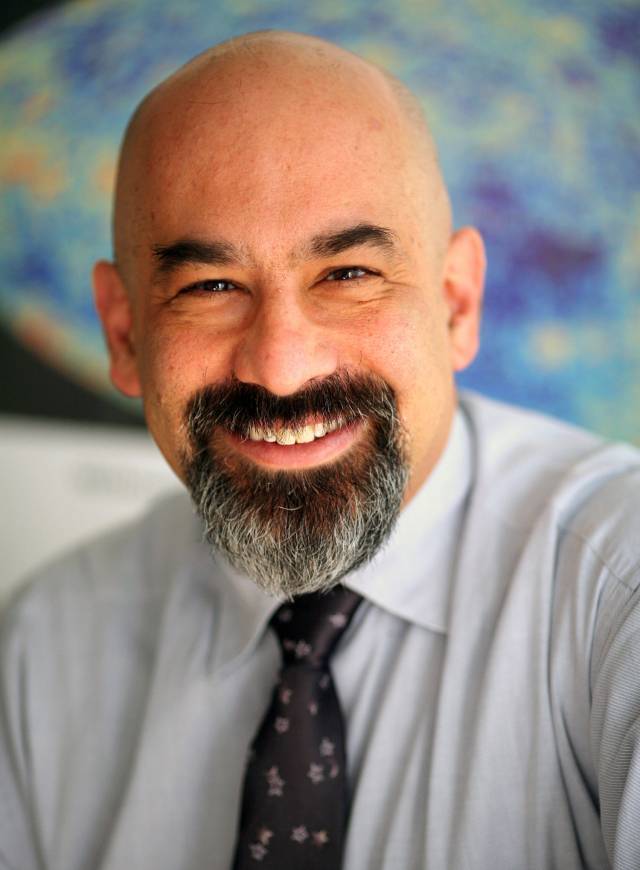
David Spergel
David Spergel is an astrophysicist with research interests ranging from the search for planets around nearby stars to the shape of the universe. A 1982 Princeton alumnus, he earned his Ph.D. at Harvard University. He joined the faculty in 1987 and received the President’s Award for Distinguished Teaching in 2013.
Using microwave background observations from the Wilkinson Microwave Anisotropy Probe (WMAP) Satellite and the Atacama Cosmology Telescope, he has measured the age, shape and composition of the universe. These observations have played a significant role in establishing the standard model of cosmology. He is one of the leaders of the Simons Observatory, which will include a planned millimeter-wave telescope that will enable the next step in studying the microwave sky and probing the history of the universe. Spergel is co-chair and is shaping the overall mission of the Wide Field Infrared Survey Telescope (WFIRST) science team, which will study the nature of dark energy, complete the demographic survey of extrasolar planets, characterize the atmospheres of nearby planets, and survey the universe with more than 100x the field of view of the Hubble Space Telescope.
He is an associate faculty member in the Department of Physics.
Spergel was awarded a MacArthur Foundation grant in 2001 and is the recipient of the 2010 Shaw Prize and the 2015 Dannie Heineman Prize for his breakthroughs in our understanding of the universe. In 2017, he received the Breakthrough Prize in Fundamental Physics, as well as NASA’s Exceptional Public Service Medal, awarded to any nongovernment individual for important contributions to NASA projects, programs or initiatives. He is a member of the National Academy of Sciences and the American Academy of Arts and Sciences.
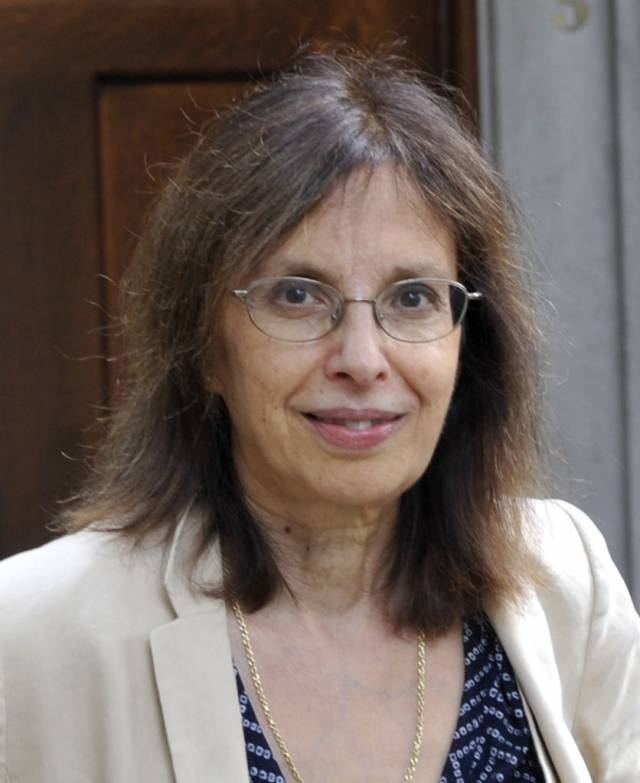
Jacqueline Stone
Jacqueline Stone is an internationally acclaimed leader in the study of Japanese Buddhism. She joined the Princeton faculty in 1990, Her current research areas include death and dying in Buddhist cultures, Buddhism and nationalism, and traditions of the “Lotus Sutra,” particularly Tendai and Nichiren.
She is the author of “Original Enlightenment and the Transformation of Medieval Japanese Buddhism,” and “Right Thoughts at the Last Moment: Buddhism and Deathbed Practices in Early Medieval Japan.” She has co-edited “The Buddhist Dead: Practices, Discourses, Representations” (with Bryan J. Cuevas), “Readings of the Lotus Sutra” (with Stephen F. Teiser, the D. T. Suzuki Professor in Buddhist Studies at Princeton), and other volumes of collected essays.
In 2018, she was elected to the American Academy of Arts and Sciences. Also in 2018, she received a President’s Award for Distinguished Teaching from Princeton. She earned her bachelor’s degree from San Francisco State University and her Ph.D. from UCLA.
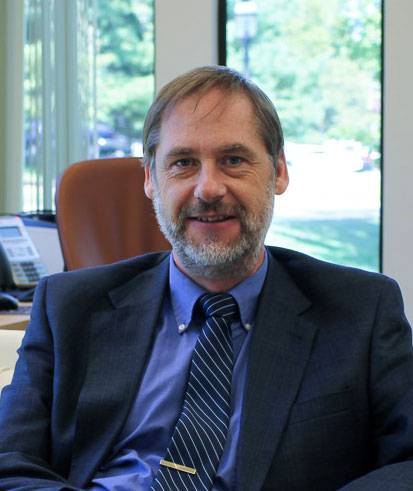
James Stone
James Stone is a leading researcher on the use of large-scale direct numerical simulations to study the gas dynamics of a wide range of astrophysical systems, from protostars to clusters of galaxies. He has also made important contributions to understanding the structure and evolution of the interstellar and intergalactic medium.
The code packages that Stone and his collaborators have shared have enabled thousands of papers in fields of astrophysics ranging from the lowest to highest energies (interstellar clouds to accreting black holes) and the smallest to largest scales (planet-forming disks to galaxy clusters). Many projects have used features particular his codes and would have been impossible without his generosity in making the packages available to the community. In part due to Stone’s efforts, computational fluid dynamics modeling is now the de facto standard tool for research in many areas of astronomy.
Stone joined Princeton in 2003. He has served as chair of the astrophysical sciences department and served from 2009-17 as director of the Princeton Institute for Computational Science and Engineering (PICSciE), which provides access to high-performance computing systems on campus, and training and education in scientific computation and numerical analysis.
In 2018, he received the Brouwer Award in recognition of outstanding contributions to the field of dynamical astronomy.
He received his bachelor’s from Queens University in Kingston, Ontario, and his Ph.D. from the University of Illinois-Urbana.
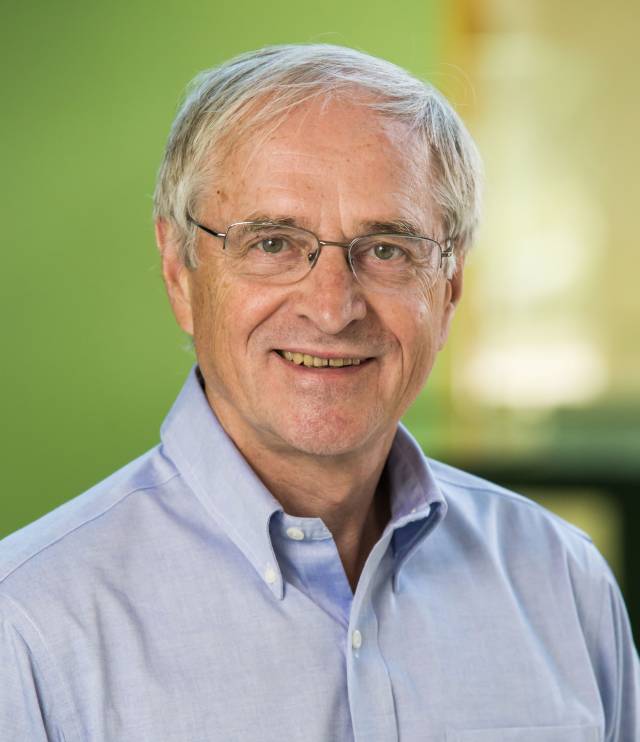
Eric Wood
Eric Wood works in the areas of hydroclimatology with an emphasis on land-atmosphere interactions for climate models and for water resource management. He is also known for the enormous impact he has had on the field of hydrology — through teaching, mentoring graduate students and professional service to the global scientific community.
Wood joined Princeton’s faculty in 1976. In the last two decades, he made significant advances that moves the field closer to realizing the promise of global hydrology. Around 2010, Eric proposed the development of hyperresolution land surface models, which enabled discovery of patterns of river flows, floods and drought at scales ranging from regional to global. In recognition of these advancements, in 2017 Eric was awarded the American Geophysical Union’s highest honor in hydrology, the Robert E. Horton Medal.
He is widely recognized as a visionary in examining Earth's water cycle, having shed new light on the role of water in the climate system and developing groundbreaking analytical tools. He will remain at Princeton as a senior scholar, continuing to develop hyperresolution land surface models. He will pursue new research avenues modeling infectious disease transmission and its relation to highly resolved hydrologic processes.
Wood earned his bachelor’s degree from the University of British Columbia and his Ph.D. from MIT.
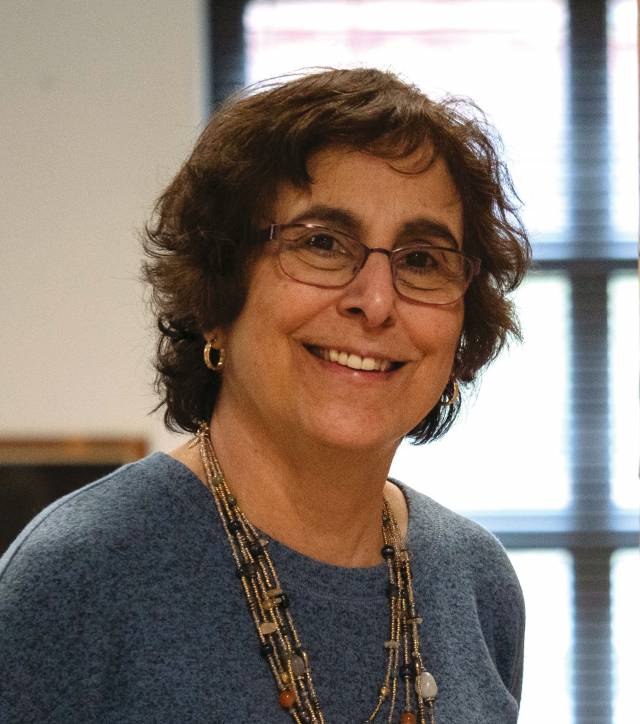
Virginia Zakian
Virginia Zakian, who joined the Princeton faculty in 1995, is a leading molecular geneticist. Her research focuses on DNA replication and chromosome structure in yeast, telomeres and replication fork progression. She has contributed groundbreaking insights into the nature and function of telomeres, the unusual structures at the ends of eukaryotic chromosomes. Her lab also discovered and characterized the first eukaryotic accessory DNA helicases, which are enzymes that allow the replication fork to move past hard-to-replicate sites such as stable protein complexes and DNA secondary structures.
Her influential contributions to the understanding of telomeres has been recognized by many honors, including election to the National Academy of Sciences and, in 2019, to the American Academy of Arts and Sciences. She has been continuously funded by the National Institutes of Health since 1979, and was awarded a prestigious Merit Award in 2000.
A champion of expanding the participation of women and underrepresented minorities in science, she has participated in efforts at both Princeton and around the country to bring greater diversity to the discipline.
She received her bachelor’s from Cornell University and her Ph.D. from Yale University.





